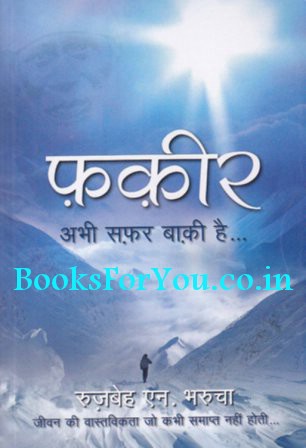The Fakir Ruzbeh Bharucha Ebook Free
Aug 12, 2018 - THE FAKIR RUZBEH BHARUCHA DOWNLOAD - Ruzbeh Nari Bharucha is an Indian author and documentary filmmaker. His other books. Dec 20, 2017 - Rent and save from the world's largest eBookstore. A devotee of Sai Baba of Shirdi, Ruzbeh N. Bharucha is one of the most influential spiritual writers of our times. He is the author of fifteen books, including the bestselling Fakir trilogy.  His articles have published in the Times of India, Free Press Journal,.
His articles have published in the Times of India, Free Press Journal,.
The author believes that the two ‘Fakir' books were a gift to him from the Sai Baba of Shirdi, and that “we are all spirits encased in a box”. Bharucha, who began his spiritual journey well before he wrote The Fakir and its sequel, The Fakir: The Journey Continues (Full Circle), is a journalist, writer of seven books and a documentary filmmaker. In his latest book ( The Journey Continues), he connects with his readers through Rudra, the central character, who has passed on after his death. Holding the hand of his spiritual leader, who the author calls Baba, and who is obviously the Shirdi Sai Baba, Rudra embarks into the private worlds of his friends as well as strangers.
Through his very interesting journeys we, the readers, are given nuggets such as how “God understands all languages heaven above understands best the language of intentions and devotion.” Even for the not-so-spiritual, it is easy to connect with some passages of this book. Take, for instance, the chapter where Rudra accompanies Baba to the house of his very dear friend, Caiz, whose young son Jehan is about to pass on; “die”, we are told, is not a word to be used. As Caiz holds on to the burning body of Jehan undergoing successive convulsions in the hospital, Rudra notes that Caiz's aura has suddenly become very calm as he sends up this prayer: “Baba, Jehan is your son your child. If you want him to be with you, take him Baba but please don't let my boy suffer. Let him come peacefully to you Baba Take him with grace please.” How many of us have sent up this fervent prayer while watching a loved one go through physical torture before the end finally comes? Such passages in the book will really make you sit up and reflect, something that every author desires.
Also, Bharucha tells us, as Caiz prays fervently for his son, “the darkness covering his aura disappeared”. Then there is the amazing story of Ethan, the cardiac surgeon, who operates on an old woman; he is asked by Baba to perform the most unconventional — even grotesque — heart surgery. Even though reluctantly, he follows the bizarre directions given to him by Baba and the surgery is a success. Apparently, in an earlier lifetime the old woman was a man, and a great benefactor of Ethan. He had taken great care of him and nursed him back to health after a dreaded illness. But instead of showing gratitude to the man who had treated him like a son, Ethan had left never to return, making the old man very bitter and angry. But the more interesting part of this story, which can shake you up, is that after Ethan had paid his “karmic debt” of a previous lifetime and extended the old lady's life by a few years, she lost the power to enjoy life.

Explains Baba to Rudra: “Her evening walks with her friends have stopped. She has witnessed her children slowly move away from her. Her eldest son barely acknowledges her she has seen the financial crisis of her son and his ill health. This is his last sojourn on earth and thus his cleansing is severe. Not a day passes by when the old woman doesn't wish herself dead.” It is passages such as this in Bharucha's book which will have many readers sighing in affirmation they will recognise in such characters a friend, a parent, or even themselves. The author also gives an interesting explanation for what many of us do on various occasions breaking a coconut. By breaking a coconut, Baba explains, the disciple tells his Master: I have broken my head no more head means no more mind of my own, no more thoughts, no more intellectual nonsense, nothing to prevent my total surrender.” While the book is an interesting read, sometimes there is a feeling of excess.
